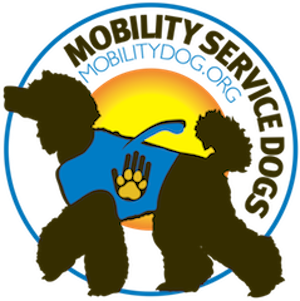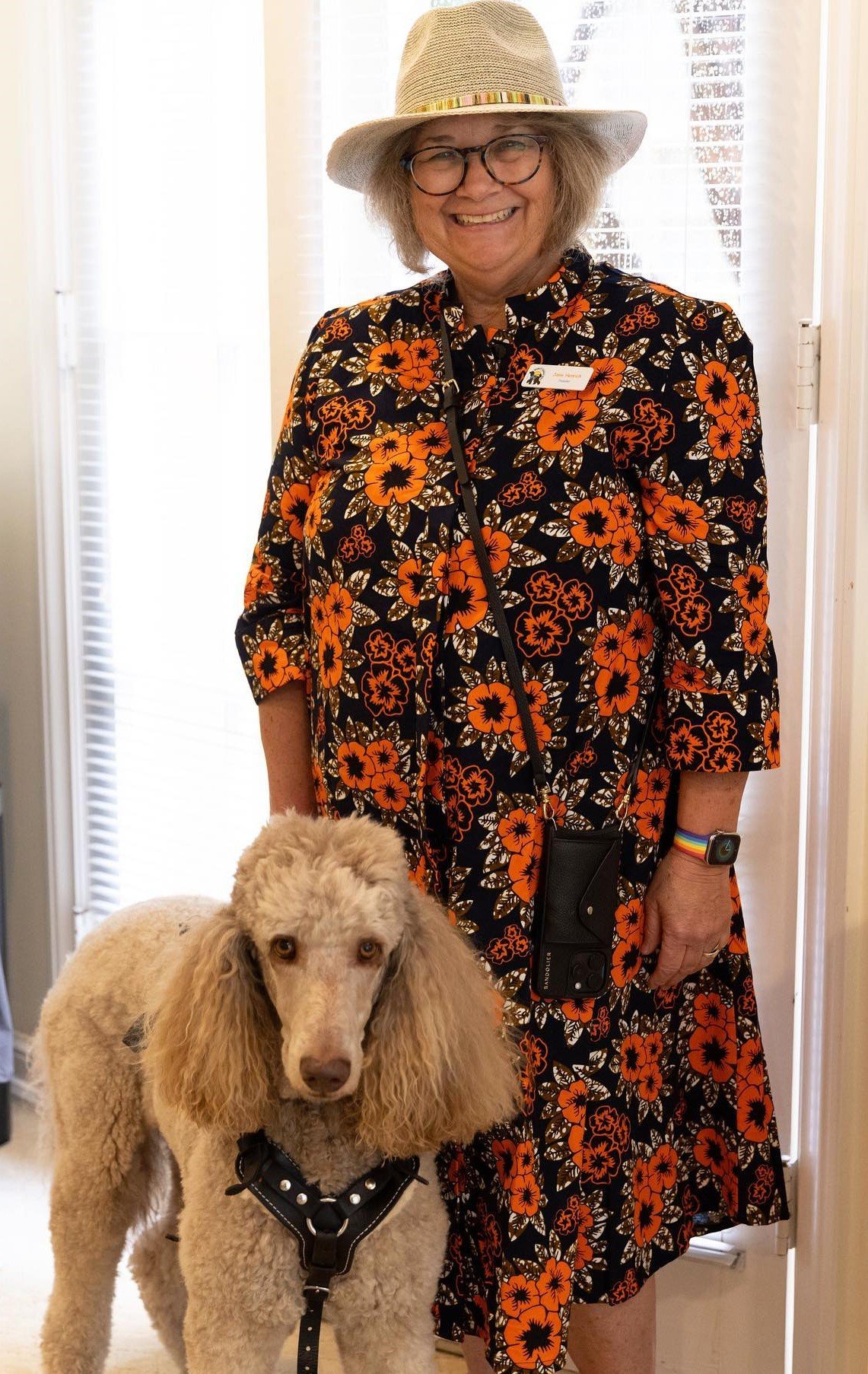What Happens if a Service Dog is Refused Entry?
Beckett, the Mobility Service Dog Poodle (Courtesy: MobilityDog.org)
No Dogs Allowed
Imagine being denied entry to a public place simply because you rely on a service dog. Unfortunately, this scenario is often common for individuals, like myself, who depend on these trained animals for assistance. The repercussions of such refusals extend beyond inconvenience; they highlight a disregard for accessibility and inclusion and can have profound emotional and practical consequences.
As someone who relies on a service dog, I've encountered my fair share of challenges especially when traveling. Below are two personal experiences Beckett and I experienced.
Blog: Learn what it means to travel with a Service Dog
No Room on the Flight
Last month, Beckett, my service dog, and I were forced to disembark a Southwest Airlines flight from Denver back to CA. Despite our confirmed reservation, I was met by the flight attendant who said my seat had been given up to another passenger. She refused to make space for us or even allow another passenger to voluntarily give up their seat! Instead, Beckett and I had to exit the plane to be put on a much later flight. Nothing I said made any difference and the experience was frustrating and stressful and left me in extreme physical pain due to my disability.
Beckett in an Elevator (Courtesy: MobilityDog.org)
Air Travel: “Refused”
In the Fall of 2023, after filing the required U.S. DOT Service Animal Air Transportation Form for the airlines and also registering with the Open Doors Organization (or in my case, “Closed” Doors as it would turn out), my service dog Beckett was refused air travel because:
“Standard Poodles are not Service Dogs;” and
“Service Dogs weigh under 60 pounds.
NOTE: neither of these reasons are valid under the ADA Act signed into law over 30 years ago!)
In addition, this organization refused to speak with me because our Form was “refused” and therefore not open to discussion or a different outcome.
Sadly, these instances are more common than you might think. Incidents like these leave me feeling not only frustrated and excluded but also deeply disillusioned by the pervasive ignorance and discrimination faced by individuals with disabilities and their service animals (like Beckett and me). But beyond the emotional toll, there are also practical consequences.
Blog: 5 Reasons Service Dogs CaN (Legally) Go Anywhere!
Mobility Service Dog and Man in Wheelchair (Courtesy: MobilityDog.org)
Consequences
Being denied access means missing out on the freedom to live one’s life to the fullest, something most people take for granted. Often, the simplest pleasures can be ruined because of an uninformed person in charge. Experiences like this continue to serve as stark reminders of the barriers individuals with disabilities often encounter in their daily lives.
These incidents also underscore the ongoing importance of education and awareness regarding the guaranteed rights of individuals with disabilities and their service animals. While federal legislation exists to protect these rights (through the ADA), enforcement and understanding remain lacking in too many cases.
Proper Education and Training
Business owners and their staff need to be properly educated about the laws governing service animals and the vital role they play as legal “medical devices.” Training programs aimed at fostering empathy and understanding towards patrons with disabilities will help cultivate a more inclusive environment.
MobilityDog offers education and training through our WAG and PAWS Workshops. Click on the links to learn more about each one.
Did you miss our last blog post “Why allowing service dogs at colleges is so important?” Read it here.
Founder Janie Heinrich and her Service Dog Beckett (Courtesy: MobilityDog.org)
My Hope
In sharing my story, I hope to shed light on the challenges faced by disabled individuals and their service animals. I hope it inspires greater empathy and understanding in our communities. It is only through collective effort and advocacy can we strive towards a more inclusive society where everyone, regardless of ability, is welcomed and respected.
As for Beckett and me, we continue to navigate the world together, undeterred by the barriers we may encounter, and hopeful for a future where acceptance and accessibility prevail everywhere among everyone.
MobilityDog Educational Workshops (Courtesy: MobilityDog.org)





